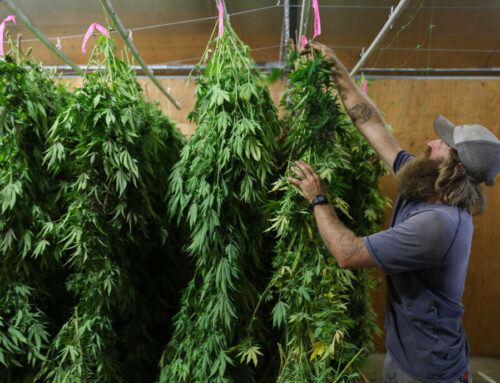Legacy Cannabis Growers Raise Concerns as Eswatini Considers Legalization
JOHANNESBURG–In the Kingdom of Eswatini, the prospect of legalizing cannabis has sparked a contentious debate, with legacy cannabis growers expressing their objections to the potential changes. As the country considers embracing a regulated cannabis industry, these long-standing cultivators argue that their illicit cannabis trade has been a vital source of income and sustenance for generations. They fear that the emergence of a legal market may disrupt their livelihoods and undermine their established network.
Eswatini, a landlocked country in Southern Africa, has a long history of cannabis cultivation. For decades, many rural communities have relied on growing cannabis as a means of economic survival. The illicit trade has thrived, providing income for families and creating a significant underground industry.
However, recent discussions surrounding the legalization of cannabis have raised concerns among these legacy growers. They worry that a legal market, which would be regulated and controlled, could undermine their position and livelihoods. The fear stems from the potential entry of large corporations and commercial interests that may dominate the industry, leaving traditional growers marginalized.
These legacy growers argue that they possess the experience, knowledge, and deep-rooted connection to the land, enabling them to produce high-quality cannabis that meets the demands of consumers. They contend that their expertise should be acknowledged and incorporated into any regulated market, rather than being dismissed or pushed aside.
As Eswatini explores the potential benefits of a legal cannabis industry, proponents of the reform emphasize the economic opportunities it could bring. Legalization could attract investment, create jobs, and generate tax revenue for the country. They argue that a regulated market would promote safety, quality control, and ensure consumer protection.
The government of Eswatini is aware of the concerns raised by legacy growers and has expressed its commitment to a consultative process that includes all stakeholders. In an effort to address these anxieties, officials have emphasized the importance of incorporating the voices of traditional cannabis cultivators and ensuring their participation in the legal framework.
It is crucial to strike a balance that recognizes the contributions of legacy growers while implementing regulations that promote fairness, safety, and economic growth. By drawing on the expertise of these long-standing cultivators, Eswatini has the opportunity to create a legal cannabis industry that respects its cultural heritage and benefits the broader population.
The ongoing discussions surrounding cannabis legalization in Eswatini highlight the complex dynamics at play when transitioning from an illicit market to a regulated one. The concerns of legacy growers should be carefully considered to ensure that the benefits of legalization are shared equitably, and the traditional knowledge and practices are not disregarded in the process.
As Eswatini moves forward with its decision-making, it will be crucial to find a balanced approach that incorporates the perspectives of all stakeholders involved, addresses the concerns of legacy growers, and paves the way for a thriving and inclusive legal cannabis industry.
Image: Farmland in Eswatini



































